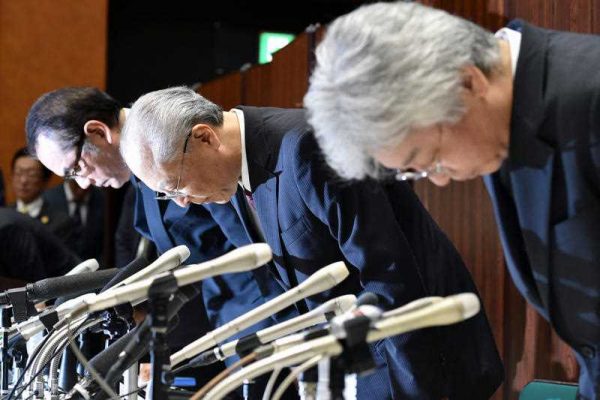In a report on the Fukushima nuclear accident, Asahi suggested that TEPCO staff had fled the scene against the orders of management, but the right-leaning Sankei Shimbun has challenged this claim. Asahi Shimbun has since acknowledged its errors, but this has not appeased its critics.
There is no doubt that this influential Japanese newspaper bears responsibility for the mistakes; the Asahi Shimbun repeated its error even after suspicions had been voiced that the reports were false. The huge public influence of their false reports necessitates a questioning of the newspaper’s basic stance.
At the same time, the excessive media bashing goes beyond the appropriate role of journalistic criticism. These media organisations have seriously breached media ethics by endlessly bashing Asahi, accusing it of ‘treason’ (baikokudo), being ‘anti-Japanese’ (hannichi) and an ‘enemy of the state’ (kokuzoku).
It is easy to criticise the extreme and excessive abuse heaped on Asahi, but the background of the situation is genuinely complicated and exposes long-standing problems in Japan’s political discourse.
This is not the first time that the revelation of an erroneous or fabricated report has sparked criticism among the Japanese media. In 1989, Asahi Shimbun was severely criticised when an article claiming that Okinawa’s coral reefs had been vandalised with graffiti by unscrupulous divers was found to have been fabricated by a journalist. In 2005, Asahi Shimbun reported that NHK’s 2001 TV program about wartime ‘comfort women’ had been altered before its broadcast, following pressure from Liberal Democratic Party politicians. NHK strongly denied the claim and a fierce battle between NHK and Asahi Shimbun ensued, ultimately involving numerous other media organisations.
It is obvious that there is always an element of media self-promotion behind these battles. But media organisations also turn scandals into an opportunity to clearly assert their political principles. For this reason these controversies usually flare up between left- and right-leaning media. The current Asahi bashing is a typical battle between left and right. As Asahi Shimbun is a representative of Japan’s left-leaning media, almost all of its critics are members of the right-leaning media, such as the two national newspapers Yomiuri Shimbun and Sankei Shimbun and some weekly magazines published by Bungei Shunju, a leading right-wing publishing company.
These controversies can therefore be seen as a kind of proxy war between leftist intellectuals and historical revisionists. Most of the intellectuals who bitterly criticise Asahi Shimbun in right-wing newspapers and magazines are either historical revisionists or supporters who sympathise with their ideas.
On the other hand, leftist intellectuals have been silent on the issue. It is easy to understand why they have not rallied to defend Asahi Shimbun; after all Asahi did publish misleading articles. Also, Japanese leftist intellectuals have a tendency to ignore the claims of revisionists. Although leftist and reformist intellectuals (kakushinkei chishikijin) constitute the mainstream of post-war Japanese intellectuals, they have tended to ignore right-wing arguments, possible due to their condescending attitude towards the opinions of revisionists and rightists.
Ironically the left’s silence sometimes generates a negative spiral. In short, the less the leftist intellectuals argue, the more the right-wing revisionists are free to loudly trumpet their beliefs.
This problem contributes to the ongoing rise of nationalistic politics in Japan. The intellectual left must urgently reconstruct persuasive left-leaning discourse that can challenge the hegemony of right-wing politics. What has actually been called into question in this debate is neither Asahi nor its blunders, but the ability of intellectuals and the leftist media to counter political discourse in the mainstream media.
Katsuyuki Hidaka is Professor of Media and Cultural Studies at Ritsumeikan University, Kyoto, Japan.

